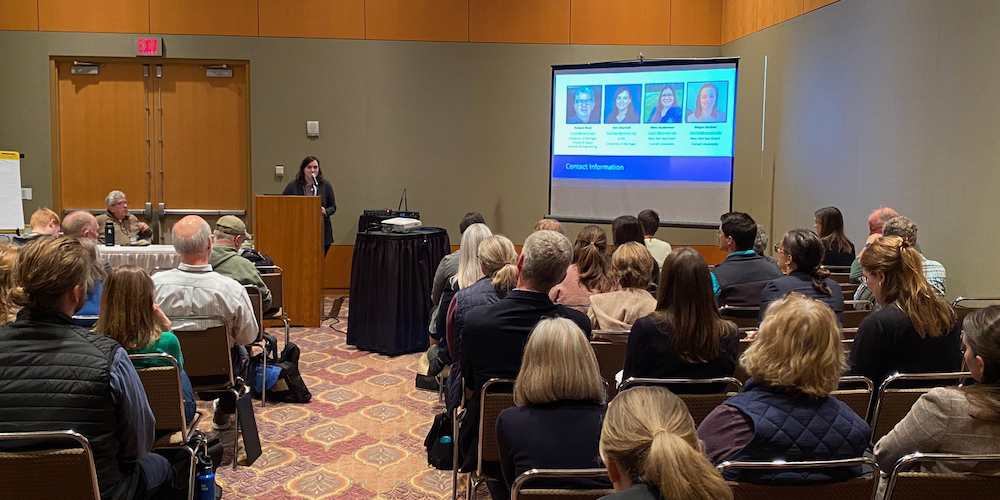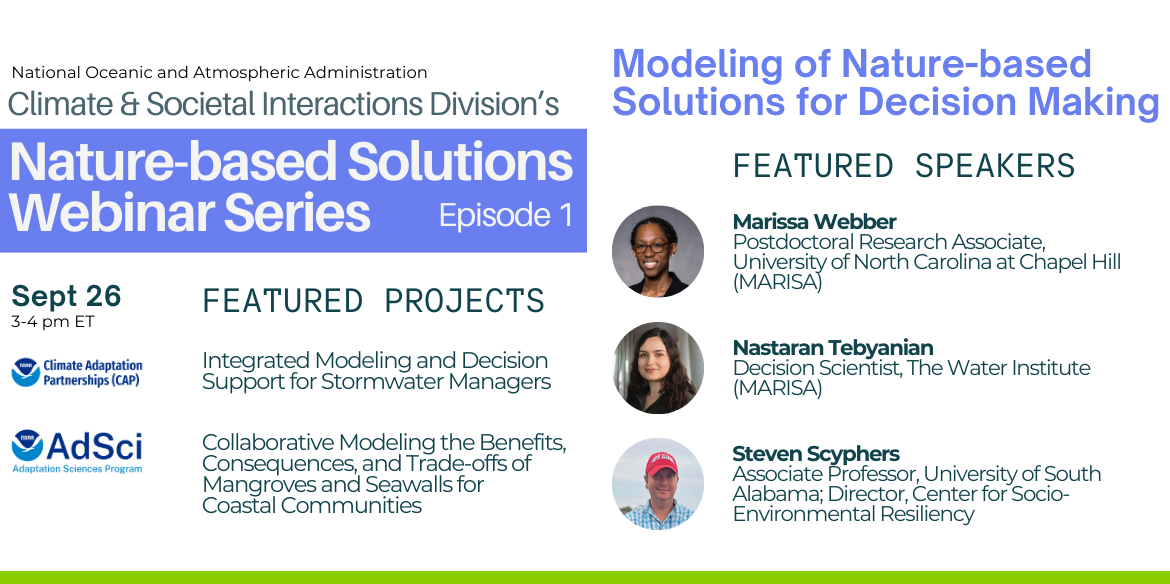Notice of Funding Opportunities
News & Events
Featured Webinars
Communities and decision makers regularly deal with multiple complex hazards, brought on by a combination of environmental and social factors, and need the support to understand, plan and adapt to local risks. CAP teams collaborate with many partners across multiple scales which can include regional entities, local government agencies, non-profits, utilities, and community partners to address this need by providing relevant science expertise and resources to inform adaptation solutions in 13 regions across the country.
The Central region covered in the briefing includes three regional teams:
- The Great Lakes team covering the great lakes regions of Michigan, Minnesota, Wisconsin, Illinois, Indiana, Ohio, Pennsylvania, New York, and southern Ontario
- The newest team the Central Midwest in Iowa, Nebraska, Kansas, and Missouri
- The South Central team in Texas, Oklahoma, Louisiana, and Arkansas
To contact the Central Midwest team, please email Brandi Janssen, brandi-janssen@uiowa.edu, and Sarah Helmer, sarah-helmer@uiowa.edu.
Communities and decision makers regularly deal with multiple complex hazards, brought on by a combination of environmental and social factors, and need the support to understand, plan and adapt to local risks. CAP teams collaborate with many partners across multiple scales which can include regional entities, local government agencies, non-profits, utilities, and community partners to address this need by providing relevant science expertise and resources to inform adaptation solutions in 13 regions across the country.
The Eastern region covered in the briefing includes four regional teams:
- The Carolina’s team in North and South Carolina
- The US Caribbean team in Puerto Rico and the US Virgin Islands
- The Urban Northeast team in the urban corridor through eastern Pennsylvania, New Jersey, New York City, Connecticut, and eastern Massachusetts
- The Mid-Atlantic team in Virginia, Maryland, Washington DC, western Pennsylvania, south central New York, and Delaware
Communities and decision makers regularly deal with multiple complex hazards, brought on by a combination of environmental and social factors, and need the support to understand, plan and adapt to local risks. CAP teams collaborate with many partners across multiple scales which can include regional entities, local government agencies, non-profits, utilities, and community partners to address this need by providing relevant science expertise and resources to inform adaptation solutions in 13 regions across the country.
The Western region covered in the briefing includes six regional teams:
- The Pacific Islands team in Hawaii, the Commonwealth of the Northern Mariana Islands, the Republic of Palau, the Republic of Marshall Islands, the Federated State of Micronesia, and American Samoa
- The West team in California and Nevada
- The Pacific Northwest team in Washington, Oregon, Idaho, and western Montana
- The Alaska team
- The Southwest team in Arizona and New Mexico
- The Intermountain West team in Colorado, Utah, and Wyoming





